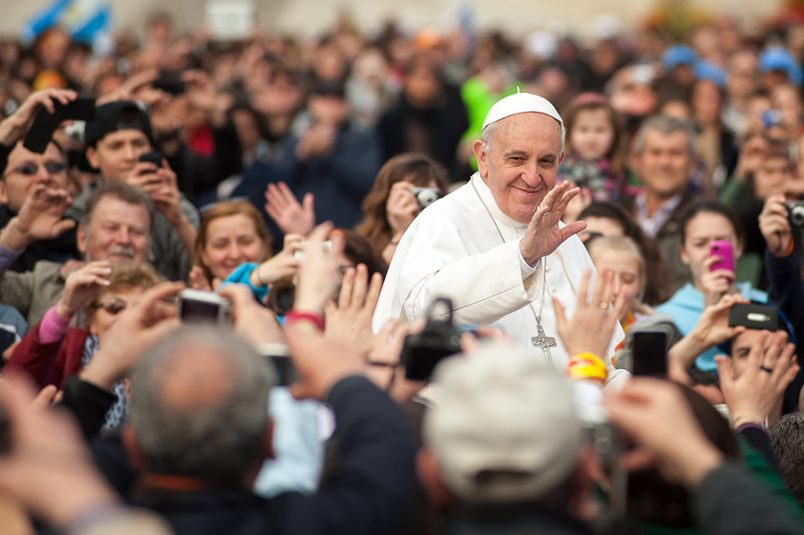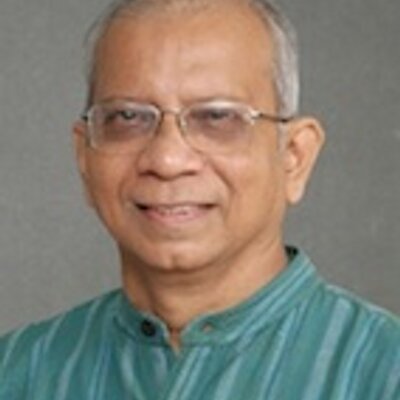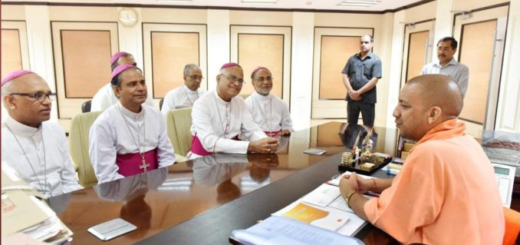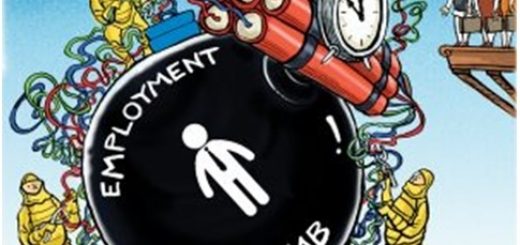COMMUNICATING TRUTH; COUNTERING ‘FAKE NEWS’

*Fr. Cedric Prakash SJ

Here is a wonderful article on World Communication Day which is observed all over the world in the Catholic Church on the Sunday before Pentecost Sunday. This year it falls tomorrow i.e. 13th of May.
Fr Cedric has broken the Pope's message into four parts and stresses on the high points of the WCD message. He ends by quoting the Prayer suggested by Pope Francis on WCD and says that we would do well to internalize this prayer and to act: to counter the fake news of today and to be communicators of truth because only the TRUTH WILL SET US FREE!
Tomorrow the Archdiocese of Calcutta also celebrates, along with others, WCD. There will be age-specific (6-15 years) sit-and-draw competition for children from different parishes of the Archdiocese and Poster/Tattoo making competition for those in the age group 16-21 years of age, at St Xavier's College, Kolkata. There will also be a special session on Fake News : What it is, how to identify and counter it effectively. Isaac Gomes, Asso. Editor, Church Citizens' Voice.
On Sunday 13 May, the Catholic Church will observe the 52nd World Communications Day. The theme this year is contextual and challenging. In a hard-hitting message for the day, Pope Francis dwells on ‘Fake news and journalism for peace’ whilst highlighting the scriptural text “The truth will set you free” (Jn 8:32).
The message of Pope Francis has four inter-related parts:
(i) what is “fake” about fake news?
(ii) how can we recognize fake news?
(iii)"the truth will set you free”
(iv) peace is the true news.
In many ways, these parts are self-explanatory, but Pope Francis consistently emphasizes the non-negotiable dimensions of communicating truth and countering ‘fake news’ stating, “I would like to contribute to our shared commitment to stemming the spread of fake news and to rediscovering the dignity of journalism and the personal responsibility of journalists to communicate the truth.”
This is Pope Francis’ fifth Communications Day message. In 2014, his theme was ‘Communications at the Service of an Authentic Culture of Encounter; in 2015, it was about family and love; in 2016, on mercy; in 2017 on hope and trust and this year on truth. There has been a clear method in what he has been trying to communicate to the Church and to the world. His opening statements for this year’s message perhaps summarizes the thrust of his ‘spirituality of communications’, “Communication is part of God’s plan for us and an essential way to experience fellowship. Made in the image and likeness of our Creator, we are able to express and share all that is true, good, and beautiful. We are able to describe our own experiences and the world around us, and thus to create historical memory and the understanding of events”.
The Media Revolution has redefined the way people think and behave. Millions of people all over the world are ‘wired’ all the time: glued to the television or through the internet either on a computer or through a latest gizmo. It is no longer an exaggeration to say that we live today in a ‘virtual village’’ However sadly as Pope Francis says, “in today’s fast-changing world of communications and digital systems, we are witnessing the spread of what has come to be known as ‘fake news’”.
Lies, falsehoods, half-truths, exaggerations, disinformation, myths- the whole range in fact constitute what is known as ‘fake news’. Both traditional media and modern media are used effectively to spread such news. Pope Francis says succinctly, “spreading fake news can serve to advance specific goals, influence political decisions, and serve economic interests”; and he is right on spot. We experience this all the time. In the recent run-up to the Karnataka elections, we saw the amount of ‘fake news’ being dished out mainly by the right-wing elements. PM Modi in keeping with the ‘feku’ tag given to him went to town spewing lie after lie. Fortunately, India is also blessed with several researchers, analysts, intellectuals and other effective communicators who were able to produce in no time very effective media presentations to counter these falsehoods. Significantly, these past few days a poster showing the PM with the words ‘Lie Lama’ went viral on social media; printed posters of these apparently were also plastered in several areas in Delhi. A ‘fake’ letter attributed to the President of the CBCI on the ‘lingayat’ issue also naturally created a furore.
Across the world, several politicians and others with vested interests are known to propagate ‘fake news’. Even in the America of today so many fall trap to the tweets and rhetoric of their President. Take for example the recent case of the nuclear deal with Iran; inspectors who are closely monitoring Iran unequivocally state that the country has not reneged on its promises; besides every other party (country) who is signatory to the deal has no reason to suspect Iran. However, falsehoods are foisted on gullible people. One can cite several other examples of how truth can get convoluted by so-called leaders with falsehood dished out.
Strangely enough, several Church personnel also are trapped in the web of ‘fake news’. Very often, particularly on social media one receives plenty of ‘forwards’; without caring to check the veracity of some news – like “Pope Francis to resign” ; “Christian Pastors going to be killed in Afghanistan” etc., – one happily goes on spreading them. Pope Francis rightly asserts, “fake news often goes viral, spreading so fast that it is hard to stop, not because of the sense of sharing that inspires the social media, but because it appeals to the insatiable greed so easily aroused in human beings”. He challenges all to counter this saying, “yet preventing and identifying the way disinformation works also calls for a profound and careful process of discernment. We need to unmask what could be called the "snake-tactics" used by those who disguise themselves in order to strike at any time and place”.
The core of Pope Francis’ message is that we have to be communicators of truth. “That is why education for truth means teaching people how to discern, evaluate and understand our deepest desires and inclinations, lest we lose sight of what is good and yield to every temptation.” He is convinced that only when we take a stand for the truth will we truly foster a “journalism of peace,… that is truthful and opposed to falsehoods, rhetorical slogans and sensational headlines…a journalism less concentrated on breaking news than on exploring the underlying causes of conflicts…, a journalism committed to pointing out alternatives to the escalation of shouting matches and verbal violence".
It is no state secret that those who take a stand for truth, who foster a journalism of peace, have often to pay the price: they are sidelined, denigrated, false accusations are foisted on them and some even killed. In January 2004, the General Assembly of the Catholic Bishops Conference of India (CBCI) meeting in Thrissur, produced a path breaking statement, ‘Called to be a Communicating Church’ in which they highlighted “that media have a prophetic role,indeed a vocation: to speak out against the false gods and ideals of the day materialism,hedonism,consumerism and narrow nationalism” . The statement also called for a Pastoral Plan for Communications; sadly, precious little has been done to ensure that “God’s plan for us” is mainstreamed! World Communications Day 2018 should galvanize us to revisit that statement, to vivify that call to be a communicating Church and to ensure its implementation. The message of Pope Francis is inspirational and challenge enough to get our act together.
Pope Francis concludes his message with an adaptation of the Prayer of St Francis of Assisi:
Lord, make us instruments of your peace.
Help us to recognize the evil latent in a communication that does not build communion.
Help us to remove the venom from our judgements.
Help us to speak about others as our brothers and sisters.
You are faithful and trustworthy; may our words be seeds of goodness for the world:
where there is shouting, let us practise listening;
where there is confusion, let us inspire harmony;
where there is ambiguity, let us bring clarity;
where there is exclusion, let us offer solidarity;
where there is sensationalism, let us use sobriety;
where there is superficiality, let us raise real questions;
where there is prejudice, let us awaken trust;
where there is hostility, let us bring respect;
where there is falsehood, let us bring truth.
Amen.
We would do well to internalize this prayer and to act: to counter the fake news of today and to be communicators of truth because only the TRUTH WILL SET US FREE!
*(Fr Cedric Prakash sj is a human rights activist. Contact: cedricprakash@gmail.com )

















The Pope’s exhortion to say nothing but Truth and the Whole Truth should be addressed to the bishops of his Church he presides over. Will he tell the bishops all over the world, especially those of “Zero” Malabar Church, to stop lying about everything for a change? As a sequel will he put an end to the rampant stealing by the clerics, of the funds collected from the Church Citizens? Even if the Pope issues a Papal Bull on this, his bishops will pay scant attention and he will have to turn away with mud on his face.
Will he arrange for the sifting through of the archives of the Vatican Library and bring into the open the hidden hideous stories of the suppression, repression, cruelties, assassinations, poisoning, cold-blooded murders, skulduggery of the Papacy over the centuries? Will he bring into open the murky affairs of the Vatican Bank, Opes Dei et al? No chance. If he does any thing of the sort, even if hides in the deep bowels of the earth, the Mafiosi in the Vatican will hound him down and finish him without any mercy.
Spitting in the wind will boom-rang with vengeance. Beware!!!
Varghese Pamplanil